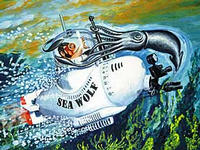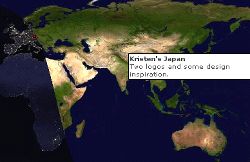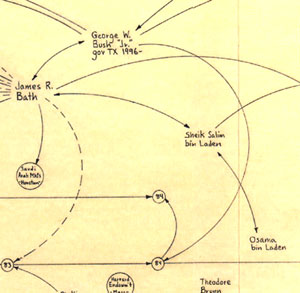|
This is my dynamic, frequently updated homepage. This is a NewsLog, also known as a WebLog or Blog.
Everything is evolving, so don't assume too much.
People to watch:
Adina Levin
Andrius Kulikauskas
Britt Blaser
Catherine Austin Fitts
Chris Corrigan
Clay Shirky
Dan Gillmor
Dave Pollard
David Allen
David Weinberger
Dewayne Mikkelson
Dina Mehta
Doc Searls
Elisabet Sahtouris
Elizabeth Lawley
Euan Semple
Florian Brody
Frank Patrick
Gen Kenai
George Dafermos
George Por
Graham Hancock
Greg Elin
Hazel Henderson
Heiner Benking
Inspector Lohman
Jean Houston
Jerry Michalski
Jim McGee
Jim Moore
John Abbe
John Perry Barlow
John Robb
Joi Ito
Jon Husband
Jon Lebkowsky
Jon Udell
Jonathan Peterson
Judith Meskill
Julian Elvé
Julie Solheim
Kevin Marks
Lawrence Lessig
Leif Smith
Letecia Layson
Lilia Efimova
Lisa Rein
Marc Canter
Mark Oeltjenbruns
Mark Pilgrim
Mark Woods
Martin Dugage
Martin Roell
Mary Forest
Matt Mower
Max Sandor
Michael Fagan
Mike Owens
Mikel Maron
Mitch Kapor
Mitch Ratcliffe
Nathalie dArbeloff
Netron
Noam Chomsky
Paul Hughes
Peter Kaminski
Phil Wolff
Philippe Beaudoin
Ray Ozzie
Raymond Powers
Rebecca Blood
Roger Eaton
Roland Tanglao
Ross Mayfield
Scott Lemon
Sebastian Fiedler
Sebastien Paquet
Skip Lancaster
Spike Hall
Steven Johnson
Stuart Henshall
Thomas Burg
Thomas Madsen-Mygdal
Thomas Nicholls
Timothy Wilken
Todd Suomela
Tom Atlee
Tom Munnecke
Tom Tomorrow
Ton Zijlstra
Lionel Bruel
Loic Le Meur
Nancy White
Mark Frazier
Merlin Silk
Robert Paterson
Colby Stuart
Nova Spivack
Dan Brickley
Ariane Kiss
Vanessa Miemis
Bernd Nurnberger
Sites to watch:
Electronic Frontier Foundation
Co-intelligence Institute
Free Expression Network
Collective Intelligence
Action without borders
Manufacturing Dissent
Explorers Foundation
Disclosure Project
ThoughtsOnThinking
Forbidden Science
Emergent by Design
Greater Democracy
Global Ideas Bank
Independent Media
Space Collective
Friendly Favors
Escape Velocity
Disinformation
Collective Web
WorldChanging
YES Magazine
Disinfopedia
NotThisBody
MetaFilter
Webcamorama
BoingBoing
Smart Mobs
Do No Harm
Imaginify
FutureHi
Openworld
Nanodot
HeadMap
Rhizome
Absara
Edge
Junto
French:
Emmanuelle
Manur
Elanceur
Loeil de Mouche
IokanaaN
Blog d'Or
Le Petit Calepin
GeeBlog
Absara
Guillaume Beuvelot
Ming Chau
Serge Levan
Jean Michel Billaut
C'est pas Mécanique

I live in Toulouse, France where the time now is:
01:08
Unique Readers:

Primarily
Public Domain
Everything I've written here is dedicated to the
Public Domain.

The quotes from other people's writings, and the pictures used might or might not be copyrighted, but are considered fair use. Thus, overall, this weblog could best be described as being:
Primarily Public Domain. |
Syndication:
 ![Validate my RSS feed [Valid RSS]](http://www.newciv.org/pic/valid-rss.png)
|
| Monday, April 28, 2003 |  |
|
|
|
 From HeadMap more freedom ants: From HeadMap more freedom ants:With the geo enabled foaf adhoc mesh internet in your pocket you should be able to turn a big piece of cheese into a hat no problem
broadcast your cheese, your location, and your need for a hat
..maybe money will come into the equation maybe not
..maybe you'll get a free hat and give away your cheese
..maybe you'll meet some friends of friends
the internet is a collaboration, exchange and transformation mechanism soon to have more cool features than money If our information network gets to be pervasive enough, the need for oldfashioned money will decrease. Money was a solution to the problem of not being able to find somebody who wants what you have at the same time as finding something you want to have. It was also a solution to the problem that we didn't trust that we could always find available that which we want. What we need is better information. Because most of what we want is quite readily available, if we just know where and how.
[ Organization | 2003-04-28 16:17 | | PermaLink ] More >
|
|
|
|
 This guy is wearing a name tag all the time. I've met people like that. And I've considered it myself. As the article says, it is friendly and welcoming. There's less of a barrier for people to start talking to you. It's an invitation. Plus it is easier to remember people, easier to recognize people. A web link would be even better, of course. I'd like to just click on people across the room with a laser pointer or something, and find out who they are. Well, maybe something else that doesn't turn them blind at the same time. This guy is wearing a name tag all the time. I've met people like that. And I've considered it myself. As the article says, it is friendly and welcoming. There's less of a barrier for people to start talking to you. It's an invitation. Plus it is easier to remember people, easier to recognize people. A web link would be even better, of course. I'd like to just click on people across the room with a laser pointer or something, and find out who they are. Well, maybe something else that doesn't turn them blind at the same time.
[ Inspiration | 2003-04-28 16:36 | | PermaLink ] More >
|
|
|
|
 L.A.Times article (registration required) talks about multi-tasking and whether it is bad for you. Specifically it includes comments from a researcher who seems to think so. L.A.Times article (registration required) talks about multi-tasking and whether it is bad for you. Specifically it includes comments from a researcher who seems to think so. "Chronic multi-tasking over many years poses a strong risk for ultimate brain damage," says David E. Meyer, a cognitive neuroscientist at the University of Michigan. He is drawing on 30 years of laboratory research and published studies in the field.
Tension and confusion, those consequences wouldn't have surprised me. But brain damage?
Meyer explained: As we force ourselves to bounce from task to task and back again, we generate stress. Body and mind gear up to cope by releasing adrenaline and other hormones. This powerful medicine is good for a crisis, but hard on the machinery.[..]
Apart from brain damage and consequent depression, Meyer also noted the alarming likelihood that multi-taskers are losing the ability to concentrate. Hm, I don't know. There's something to that. As a wired-up human who's likely to always be doing a number of things at the same time, I do notice that I have a harder time concentrating when I actually need to. I have 4 instant messenger programs open. I get e-mail every 10 minutes. I have about 30 windows open on my computer. One of them is cable TV with 400 channels. I'm surfing the web. I have actual work to do. I have a lot of notes on my desk about things I need to remember. I have 3 phone lines. My family comes in and asks me things all the time. There's a stack of books I'm all reading at the same time. I feel stressed and scattered a lot of the time.
But I haven't quite decided whether multi-tasking in itself is good or bad. Whether we're evolving and learning to be continuously connected while in motion, or whether we should become more vigorous about carving out quiet concentrated space for ourselves.
My kids appear to have evolved compared to me. My 19 year old daughter seems to be perfectly comfortable chatting online with a dozen people simultaneously, while she's on the phone with somebody else, and she's listening to music and watching TV, and somebody's visiting. Doesn't look like stress at all.
I suspect there is a state of engaged synergy that is available, a being-in-the-flow, where you're doing many things at once, but they somehow work together and support each other. As a dance. As opposed to the frantic scramble of trying to do many things at once that really don't belong in the same space.
[ Organization | 2003-04-28 23:07 | | PermaLink ] More >
|
|
|
|
 The Mt.Everest base camp has been online for a couple of weeks now: The Mt.Everest base camp has been online for a couple of weeks now:"Finally, today,14th April 2003 with the contineous effort of the virtual yeti team comprising of DINESH SHILPAKAR, SANJAY SHRESTHA, BISO BAJRACHARYA, TSEWANG DORJEE, PAVAN SHAKYA and myself combined with constant support and advice from great veteran like DAVE HUGHES and GORDON COOK and DILEEP AGRAWAL, we have been able to link EVEREST BASECAMP at an altitude of 5300m at 1300 HRS Nepal standard time to our server based at the base of KALAPATHAR at an altitude of 5450m) wirelessly by using CISCO AIRONET 350 and then to AAP-1 satellite provided by SES Americom and this is the first email."
[ Technology | 2003-04-28 23:59 | 0 comments | PermaLink ]
|
|
| Saturday, April 26, 2003 |  |
|
|
|
 
Proverbs for Paranoids 3: "If they can get you asking the wrong questions, they don't have to worry about answers."
Thomas Pynchon, Gravity's Rainbow, page 251
[ Knowledge | 2003-04-26 18:26 | | PermaLink ] More >
|
|
|
|
From article on Online Journal by Ernest Partridge:"Are the people who are caught up in a mass delusion ever aware that they are living in a malignant fantasyland? Did the puritans of the Salem colony suspect that they were not hanging real "witches," but instead were collectively engaged in a monstrous injustice? Did the "good Germans" in the 1930s ever doubt that Adolf Hitler was anything less than what the captive press said he was: the "savior of the nation and the protector of the Aryan race?" Did the "good patriots" of the 1950s ever ask for proof that Senator Joe McCarthy really had a list in his hand of "known communists in the State Department?" (The number changed with each speech). How long did we persist in believing the telegenic generals' reassurances that "we've turned the corner in Viet Nam," and that "there was a light at the end of the tunnel?"
How many Americans today are aware, or if aware, care, that the Bush regime's justifications for the Iraq war were based upon lies, forgeries, and plagiarisms, and that the images of the "coalition's" "triumphs" (e.g., the toppling of the Saddam statue and the "rescue" of Private Lynch) were staged.
When society has gone mad, does the "conventional belief" somehow "feel different" to those within the society? The question virtually answers itself and history confirms that when reason departs and collective insanity takes over, it all seems "perfectly sensible" from the inside. True, in all such cases, a few discerning individuals stand apart, like the child who saw no clothes on the Emperor. But such individuals are quickly marginalized as they are denounced as "traitors," shouted into silence, exiled if they are lucky, and liquidated if they are not. After the madness has passed, statues are cast and monuments built in their name—names familiar to us all: Dietrich Bonheoffer, Klaus von Stauffenberg, Hans and Sophie Scholl ("The White Rose"), Andrei Sakharov, Joseph Welch, Edward R. Murrow, George Ball, Daniel Ellsberg, John Dean.
These heroes see what almost anyone might see—anyone who prizes his and her liberty and independence, whose wits are operational, and whose moral principles are intact. Add to this, the courage to speak out against the madness and to defend the betrayed moral principles, whatever the cost, and you have a hero." I believe most people in the world are pretty much trying to do the best they can, within the reality they think they exist in. And where things go wrong is exactly where your beliefs get so distorted that you end up doing the opposite of what you would do if you were better informed.
[ Politics | 2003-04-26 23:47 | | PermaLink ] More >
|
|
|
|
 Raymond Powers reports on a company, Genesis World Energy announcing a device that apparently would generate hydrogen from water on demand, to be used in an (almost) regular combustion engine. Raymond Powers reports on a company, Genesis World Energy announcing a device that apparently would generate hydrogen from water on demand, to be used in an (almost) regular combustion engine.The Genesis HICEF is based on a revolutionary technology recently introduced by the Genesis Project in the form of the Edison Device - a residential and commercial energy generation unit that creates gas and electrical power through the separation of hydrogen and oxygen molecules contained in any source of water. At the core of this technology are the Genesis gCells, which break water down into its basic molecular structure through a series of electro-chemical processes, yielding ultra-pure hydrogen and oxygen gases. The reactant chemistry in the Genesis HICEF Technology is different from that of the Edison Device in that the gCells do not require many of the support processes needed in the Edison technology. The water supplying the gCells can be stored in special tanks that replace the ones currently used for gasoline in conventional fossil-fuel vehicles. That would be nice. I don't understand where the energy comes from to do that. But hopefully it actually works.
[ Technology | 2003-04-26 23:47 | | PermaLink ] More >
|
|
|
|
This article in The Chronicle of Higher Education talks about researchers who believe they have a mathematical model of marriage. It is not quite as crazy as it sounds. A group of researchers at Seattle's Family Research Laboratory, also known as the Love Lab, have over 24 years recorded thousands of conversations between couples, and have discovered certain patterns. So well that they have a 90% accuracy in predicting which ones will divorce. The key point they find in a successful relationship is the ability of the participants to influence each other emotionally, in both positive and negative directions. It is not how much they yell at each other, but it is how flexible they are. If they don't respond to each other's emotions, or only do it in one direction, it will probably fail. So, observers can sit and note down the emotions of the two people who are having a conversation, and can figure out how well it is going based on how well they track with each other. That's kind of cute. Anybody trained in NLP would have noticed the same things right away, and would know what to do about it. But I guess it is good for more mainstream psychology to develop a scientific basis for understanding that relationships work better if people are in rapport with each other.
[ Science | 2003-04-26 23:47 | 0 comments | PermaLink ]
|
|
|
|

Count the black dots.
Or don't you trust your senses?
Maybe you need another blue pill.
[ Inspiration | 2003-04-26 23:47 | | PermaLink ] More >
|
|
| Friday, April 25, 2003 |  |
|
|
|
 From Anne Herbert, Works of Frith: From Anne Herbert, Works of Frith:Carol said, "The name of my band is 'Failure to Disperse.'"
Which is the very activity we are called to right now. Some of the most important work to do now is to fail to disperse and to remind others to fail.
People with microphones who may be more interested in their own interests than in ours are strongly recommending that we disperse.
Suggestions popular now include being scared of the group or groups du jour--gays like me, immigrants like the family I come from, people in other countries we haven't met, poor people, people who aren't pale or aren't suit-bound or both, people who don't live inside.
Be scared of them, miss any connection you might have with them.
Disperse.
If you're in one of the recommended icky groups, be more scared of everyone else.
Disperse.
Also suggested to you by those who want to control you:
Watch lots of TV. Inside, in your own place. So what you mainly know about other groups is what people who plan to profit from your fear tell you to make you scared.
Stay in your car. See other people as good or bad drivers, in your way or not. Don't see their faces and possibly, in their faces, their story. Keep your face behind a windshield so they won't see your face and your story.
Stare at screens. Don't have very many times and places to look at people.
Disperse. Be alone with whatever manipulative info is coming at you through screens. Spend less and less time being in your own physical situation with your own body and your own impressions. Disperse; break < up the connection with your own physical life.
Watch TV and say how stupid it is. That's fine. Just as long as you watch it. Using your intelligence to say that TV is stupid is not really having a very strong connection with your own intelligence.
In fact, it is dispersing from the great new stuff you'd come up with to do if you applied your intelligence to the situation you yourself are actually in. If you came up with great new stuff, you might not follow orders from leaders, so please do watch TV and get off on knowing it's stupid. Indeed. That is one of the strongest messages being broadcast to you in the ethers. Disperse. The world is a disconnected, random and dangerous place. So, disperse and be separate, afraid and disorganized like everybody else. Well, it is a lie. A lie that allows those who are better organized and informed than the rest of us to get the upper hand. The main thing to do to change the tide is to fail to disperse. Connect. Communicate. Organize. Gather a collective picture of what is really going on. Act accordingly.
[ Organization | 2003-04-25 18:59 | | PermaLink ] More >
|
|
|
|
 A new hydrogen refueling station has been opened in Iceland. You know, for cars running on hydrogen. There aren't many of those yet. The hydrogen is created on the spot from water, using electricity from local geothermal and hydroelectric sources. In other words, that's about as clean and sustainable as it gets. There are a few other hydrogen refueling stations around the world, so it is not the first like it says. A new hydrogen refueling station has been opened in Iceland. You know, for cars running on hydrogen. There aren't many of those yet. The hydrogen is created on the spot from water, using electricity from local geothermal and hydroelectric sources. In other words, that's about as clean and sustainable as it gets. There are a few other hydrogen refueling stations around the world, so it is not the first like it says.
[ Technology | 2003-04-25 19:14 | | PermaLink ] More >
|
|
|
|
 NASA announced that it has a couple of satellites that are helping to continuously map the Earth's 'metabolism'. They track the rate at which plant life is absorbing carbon (from carbon dioxide) out of the atomosphere. That shows the productivity of the Earth's carbon cycle. NASA announced that it has a couple of satellites that are helping to continuously map the Earth's 'metabolism'. They track the rate at which plant life is absorbing carbon (from carbon dioxide) out of the atomosphere. That shows the productivity of the Earth's carbon cycle.The rate of carbon fixation through photosynthesis is a basic property of life on planet Earth. It is the basis for capturing and storing the energy that fuels our world’s living systems and forms the foundation of the food webs. The oxygen we breathe is a byproduct of this photosynthesis. According to its creators, these new net primary productivity maps provide a fascinating new insight into the intimate connection between the living world and the physical world.
"We are literally watching the global garden grow,” says Steve Running, MODIS Science Team member and director of the Numerical Terradynamic Simulation Group at the University of Montana. “We now have a regular, consistent, calibrated and near-real-time measure of a major component of the global carbon cycle for the first time. This measure can also be the basis for monitoring the expansion of deserts, the effects of droughts, and any impacts climate change may have on vegetation growth, health, and seasonality." Notice that a lot of the productivity is in the oceans. About half of the total. Interesting to see those maps. It all isn't entirely in the areas I would have expected. A whole lot going on in Canada, Sweden, Siberia, and in the North Sea.
[ Nature | 2003-04-25 19:34 | | PermaLink ] More >
|
|
| Thursday, April 24, 2003 |  |
|
|
|
 Tomalak mentions Leonardo da Vinci, Disciple of Experience, a brief article by Mark Hurst on Good Experience, about how da Vinci was a man of direct experience, dedicated to perceiving and experiencing things directly, as opposed to just talking about them academically. Tomalak mentions Leonardo da Vinci, Disciple of Experience, a brief article by Mark Hurst on Good Experience, about how da Vinci was a man of direct experience, dedicated to perceiving and experiencing things directly, as opposed to just talking about them academically.The sketches, of course, were beautiful. But what really struck me was the sheer breadth of this one man's talents. da Vinci wrote treatises on physics, anatomy, astronomy, warfare, art, and other topics. Without a formal education, da Vinci never mastered Latin, the language in which academic treatises were written at that time. Some scholars dismissed his work.
da Vinci replied that he was a "disciple of experience": "[They may say] I'm a man without learning, [but] I will cite something far more worthy, quoting experience..." In another essay, da Vinci writes that ...the subjects I am dealing with are to be dealt with by experience rather than by words, and experience is the muse of all who write well. And so, as my muse, I will cite her in every case. 500 years ago, da Vinci understood the power of experience. Academic pedigree is fine, but a direct grasp of experience is essential. Analyzing and learning from direct experience is innately more powerful than hiding behind obscure academic methods. da Vinci "got it." Maybe he was the first.
500 years later, there are still those academics whose frameworks, methods, and terminology talk *about* experience but don't help much in bringing people to an understanding of the experience itself. Remember the Italian scholars who were so concerned with da Vinci's knowledge of Latin (the "method" of the day) that they completely missed (or dismissed) his genius - and didn't help others to see it. Ah, yes, there's no better teacher than direct experience with your own senses. But it isn't always what is most fashionable.
[ Knowledge | 2003-04-24 13:56 | | PermaLink ] More >
|
|
|
|
 Wired has an editorial by Graham S. Hawkes suggesting a NASA for the exploration of the deep oceans. It has been noted many times that our oceans contain more mysteries and are more uncharted than is the Moon or Mars. And they're so much closer. Wired has an editorial by Graham S. Hawkes suggesting a NASA for the exploration of the deep oceans. It has been noted many times that our oceans contain more mysteries and are more uncharted than is the Moon or Mars. And they're so much closer.About 94 percent of life on Earth resides in the oceans. We've seen only about 2 percent of this vast ecosystem - the uppermost layer (home to fish, whales, scuba divers, and most known marine life). Beneath this warm lens lies a cold, dark, and life-rich realm of grand proportions. It's home to creatures as far removed from the sun and human biology as any alien imagined by science fiction.
We've seen some of these organisms clustering around midocean thermal vents - small undersea volcanoes that spew 400-degree water spiked with toxic chemicals. Thriving in total darkness, under 8,000 psi of ambient pressure, these organisms possess metabolic processes fundamentally different from ours. The ones we know about rely on chemosynthesis, using sulphides and other chemicals from Earth's core to convert seawater into food. That's about as alien as it gets. There's potentially huge resources there, and discoveries waiting to be made in how life works, in new kinds of DNA.Currently, the entire US scientific community shares a single, 12-year-old submersible named Alvin. With just one Alvin, long-range exploration is nearly impossible. Alvin doesn't even know where to go because we don't have a decent map. The latest ocean charts rely on satellites to detect the sea-level changes wrought by the gravitational pull of underlying topography. This gives us a crude sketch that's essentially useless without hands-on exploration. We can't begin to mine the sea's minerals or harvest DNA unless we go deep, with a fleet of sea exploration vessels. We need a national agency with the stated goal of exploring, mapping, and studying the oceans.
Japan is already there, having created the Japan Marine Science and Technology Center, which secures rights to deep-sea minerals, territories, and potential food sources. Its Deep Star program has even taken an early lead in DNA recovery: It's already working with the biotech industry to develop pharmaceuticals. Meanwhile, we're still combing the rain forests and wishing upon a star. Well, maybe it isn't all that terrible that the U.S. hasn't figured out how to exploit the resources of the oceans. That keeps them somewhat intact. Or just accessible to nations that are more concerned about the environment than the U.S. regime.
[ Nature | 2003-04-24 17:46 | | PermaLink ] More >
|
|
|
|
Many people I know are at O'Reilly's Emerging Technology conference in Santa Clara right now. Or rather, pretty much ALL the a-list tech bloggers are there. And I feel a bit left out, as they're talking about many things I'm into. But I just can't defend spending a couple of thousand dollars going to a conference for three days, even if I could squeeze it out of my budget. I'm sorry, I only make 100K per year. Well, last year, when my economy was looking better, I did set myself the target of going to a conference or so per month. And each time that would usually end up costing close to 1000 dollars total, including air plane tickets, hotels, etc. The typical conference I go to would, if it wasn't free, be $2-300. I just can't even wrap my mind around paying even $995 (the early bird, several months in advance price), let alone $1600, just for the conference itself. For sitting on a chair and listening to some people talk, and for the opportunity of meeting some people in the hallway. Oh, great talks and great people that I would like to hang out with, but it somehow doesn't add up. Of course my great visionary tech acquaintances mostly aren't paying for being there, because they're the speakers, or they're journalists. I suppose it is geared towards corporate folks who come to hear what these guys have to say. Anyway, other people seem to have something to say on the money thing too: here, here and here
[ Diary | 2003-04-24 22:50 | | PermaLink ] More >
|
|
|
|
 The Dixie Chicks apologized for being disrepectful to George Bush by saying that they were ashamed of being from Texas at a recent European concert. They shouldn't have apologized. I'm ashamed of even living in a country that will tolerate such a wacko as its president. Shame is certainly the right word. And I'm not even an American. And all the right-wing redneck stormtroopers responded by burning their albums, banning their music on southern radio stations, and coming up with a long list of slurs about them. Well, at least they can maintain their stance against war and for peace. And make a bit light of the whole thing, as in this nude magazine cover. The Dixie Chicks apologized for being disrepectful to George Bush by saying that they were ashamed of being from Texas at a recent European concert. They shouldn't have apologized. I'm ashamed of even living in a country that will tolerate such a wacko as its president. Shame is certainly the right word. And I'm not even an American. And all the right-wing redneck stormtroopers responded by burning their albums, banning their music on southern radio stations, and coming up with a long list of slurs about them. Well, at least they can maintain their stance against war and for peace. And make a bit light of the whole thing, as in this nude magazine cover.
[ Politics | 2003-04-24 23:03 | | PermaLink ] More >
|
|
| Wednesday, April 23, 2003 |  |
|
|
|
 From HeadMap: From HeadMap:money was predicated on spatial constraints
the range of currencies is infinite and the money is intermediary between them
hats are currency, butter is currency,
they get filtered through money (so that ..hats can buy butter at another place and time)
the friction that transportation and distribution and communication among those who would exchange created the right climate for money
the internet is doing some disturbing things
it is creating currencies and ecoonomies with no money intermediary
link economies, peer two peer file sharing economies and software development and exchange economies
this seems to suggest that in the absence of friction money makes less and less sense
in fact in the current climate many things are starting to make less and less sense
and these network economic anomalies will soon slip into the real world
destroying huge industries based on friction difficulty seperateness and centralisation
as exchange without money becomes more efficient and reliable
money won't disappear but will have to start living in parallel with vibrant, aggressive efficient parallel economic forces
the moves towards hardware level copyright controls and crippling copyright legislation
seem more and more like attempts to artificially introduce friction into a system that by its nature is able to remove it entirely
there seems to be the fear that money itself may be on the verge of collapse and that only a radical lockdown can save a civilisation with money at its heart
capitalism is being augmented at a frightening speed
[ Organization | 2003-04-23 23:13 | | PermaLink ] More >
|
|
|
|
 BlogBaby has a nice overview of the Bush administrations war against public forests in the U.S. Such as the article that this is from: BlogBaby has a nice overview of the Bush administrations war against public forests in the U.S. Such as the article that this is from:Washington- Environmental activists and community groups from more than twenty cities around the nation held demonstrations, marches, sit-ins and rallies to protest the Bush administration's attempts to weaken environmental laws protecting public land, including endangered forests. These Earth Day protests come just one week before the U.S. House will consider legislation containing parts of President Bush's controversial, "Healthy Forest Initiative." The cities included Atlanta, New York, Pittsburgh and Washington, D.C.
"The Bush administration assumes Americans are too distracted by global politics to care about our national forests here at home," said Andrew George, Campaign Coordinator for the National Forest Protection Alliance, a coalition of 130 forest protection groups, including Greenpeace. "This national day of protest serves to demonstrate how much the public cares about national forests and signals the beginning of an escalating campaign to expose, confront and prevent attempts to undermine our environmental laws and the forests those laws safeguard."
In 2001, the Bush administration handpicked former logging lobbyist Mark Rey to serve as the Undersecretary for Natural Resources and Environment, and oversee the management of 192 million acres of national forest lands. A industry lobbyist for 18 years, Rey has since initiated a series of unprecedented rollbacks to the nation's environmental laws that protect clean water and wildlife habitat and guarantee public oversight and participation. That's a great idea. Put a professional logging lobbyist in charge of the environment, and give all the forests to the logging industry. Keeps the wheels churning. Who needs forests anyway.
[ Politics | 2003-04-23 23:23 | 0 comments | PermaLink ]
|
|
| Tuesday, April 22, 2003 |  |
|
|
|
 Mikel Maron has a cool visualization of the Blogosphere. You see on the world map in real time what people post on their weblogs. Is it really real time? Anyway, very neat with a different perspective like that. I am fond of global displays. That's how I'd like to get all sorts of information. A display of the world that you can then drill into, to look closer at different parts. Mikel Maron has a cool visualization of the Blogosphere. You see on the world map in real time what people post on their weblogs. Is it really real time? Anyway, very neat with a different perspective like that. I am fond of global displays. That's how I'd like to get all sorts of information. A display of the world that you can then drill into, to look closer at different parts.
[ Technology | 2003-04-22 21:05 | | PermaLink ] More >
|
|
|
|
 Financial Times via Synergetic Earth News about the confusion over who controls Iraq's oil ministry. Financial Times via Synergetic Earth News about the confusion over who controls Iraq's oil ministry.The director general said he was confused by the lack of any formal notices, and had a only a vague idea of the committee, backed by the Iraqi National Congress, the formerly exiled opposition group. "I don't honestly know who they are, who chose them, how they are being motivated. I know I am in contact with no one and no one is in contact with me." However, he lamented the whole US approach to dealing with post-war Iraq. "We have a lot of experience with coups d'etat and this one is the worst," he said. "Any colonel in the Iraqi army will tell you that when he does a coup he goes to the broadcasting station with five announcements. "The first one is long live this, down with that. The second one is your new government is this and that. The third is the list of the people to go on retirement. The fourth one, every other official is to report back to work tomorrow morning. The fifth is the curfew." This is usually done within one hour, he added. "Now we are waiting more than a week and still we hear nothing from them." Yeah, it is a bit of problem when you engineer a coup in another country, but you're trying to pretend that you didn't. Or maybe rather that you brought down the government in that country, and you destroyed its infrastructure, and now you're bringing in a few expats who you think you can groom to run the country instead, but you're still trying to pretend you're not the new government.
[ Politics | 2003-04-22 21:41 | | PermaLink ] More >
|
|
| Monday, April 21, 2003 |  |
|
|
|
 NY Times reports that an Iraqi scientist is suddenly talking, and saying that Iraq had chemical and biological weapons, but destroyed them a few days before the war. That sounds a bit overly convenient for Bush. Both justifying the war and also justifying why none of the purported 'weapons of mass destruction' are being found. Very clever. Oh, it might be true, but that would have been extraordinarily non-sensical from Saddam's perspective. NY Times reports that an Iraqi scientist is suddenly talking, and saying that Iraq had chemical and biological weapons, but destroyed them a few days before the war. That sounds a bit overly convenient for Bush. Both justifying the war and also justifying why none of the purported 'weapons of mass destruction' are being found. Very clever. Oh, it might be true, but that would have been extraordinarily non-sensical from Saddam's perspective.
And what's with not being able to find Saddam Hussein? If they end up not finding him at all, I'd say there's a pattern forming here. Osama bin Laden was enemy number one, as the supposed mastermind of 9/11. For months everything was about him. He's here, he's there, maybe we got him, maybe he's dead, blah, blah. And suddenly nobody pays any attention any longer, despite that he wasn't found and probably isn't dead.
Same thing with Saddam Hussein. If they don't find him, and the media suddenly loses interest, I'd say something very sinister is going on. It was simply a matter of George W. being business partners with Osama bin Laden, and with Saddam Hussein. Shouldn't be much of a stretch, as his Dad pretty much hired them for their jobs in the first place, as CIA director. So, they did their scripted part, and we have a phoney chase trying to find them for a few months. And then they go into the equivalent of the witness protection program. They get plastic surgery, new passports, a few billion in a bank account, and spend the rest of their lives in underground palaces in Bora Bora. Or they moved on to the black government's bases on Mars for all I know.
[ Opinions | 2003-04-21 14:45 | | PermaLink ] More >
|
|
|
|
 Paul Hughes posts an article by Max Tegmark about several different possible models for the multiverse, involving various scenarios of parallel realities in one form or another. Fascinating reading. Paul Hughes posts an article by Max Tegmark about several different possible models for the multiverse, involving various scenarios of parallel realities in one form or another. Fascinating reading."So should you believe in parallel universes? The principal arguments against them are that they are wasteful and that they are weird. The first argument is that multiverse theories are vulnerable to Occam's razor because they postulate the existence of other worlds that we can never observe. Why should nature be so wasteful and indulge in such opulence as an infinity of different worlds? Yet this argument can be turned around to argue for a multiverse. What precisely would nature be wasting? Certainly not space, mass or atoms--the uncontroversial Level I multiverse already contains an infinite amount of all three, so who cares if nature wastes some more? The real issue here is the apparent reduction in simplicity. A skeptic worries about all the information necessary to specify all those unseen worlds.
But an entire ensemble is often much simpler than one of its members. This principle can be stated more formally using the notion of algorithmic information content. The algorithmic information content in a number is, roughly speaking, the length of the shortest computer program that will produce that number as output. For example, consider the set of all integers. Which is simpler, the whole set or just one number? Naively, you might think that a single number is simpler, but the entire set can be generated by quite a trivial computer program, whereas a single number can be hugely long. Therefore, the whole set is actually simpler. [...]
A common feature of all four multiverse levels is that the simplest and arguably most elegant theory involves parallel universes by default. To deny the existence of those universes, one needs to complicate the theory by adding experimentally unsupported processes and ad hoc postulates: finite space, wave function collapse and ontological asymmetry. Our judgment therefore comes down to which we find more wasteful and inelegant: many worlds or many words. Perhaps we will gradually get used to the weird ways of our cosmos and find its strangeness to be part of its charm. Heheh, that's the cool part. Somebody who proposes anything other than this wonderful infinite unified multiverse will have some serious explaining to do, as to why things would be only that one particular way, rather than ALL ways. I think I'm going to chuckle the rest of the day.
[ Science | 2003-04-21 23:25 | | PermaLink ] More >
|
|
|
|
 Xeni on BoingBoing: Xeni on BoingBoing:If you liked Susannah's BoingBoing guestblog post of yore about The Operation (thanks, Kai), the experimental art-porn film shot with infrared, then you will dig this story about a French (of course) medical researcher using magnetic resonance imaging to observe how female internal anatomy accommodates a penis in a variety of sexual positions. I want pictures. The first BoingBoing reader to score them and post urls in this discuss forum -- or roll their own MRI erotica and post them online-- wins my undying blog-respect.
Update: Boingboing reader "ellison" shares these clinically accurate and decidedly non-prurient links to photographs from an earlier MRI-sex study referenced in the story above. Erotica, they ain't, but MRI images, they are. Link one, link two. > Update Two: aktiv1 shares a link to this very funny testimonial from a female Dutch anthropologist who discusses what it was like to be the subject of an earlier MRI-sex-photography project. Great, science can be a lot of fun. We need to see a movie of course.
[ Inspiration | 2003-04-21 23:57 | | PermaLink ] More >
|
|
| Sunday, April 20, 2003 |  |
|
|
|
 Excellent article from New York Times, The True Cost of Hegemony: Huge Debt. (Registration required). Excellent article from New York Times, The True Cost of Hegemony: Huge Debt. (Registration required).
It examines the strange picture of how the apparent U.S. power is paid for from borrowed funds. And a lot of the money comes from overseas. The U.S. government is now occupying Iraq, but optimistically has set aside hardly any money for reconstructing the country.Can the United States provide the necessary cash, even in the form of private-sector money? The answer is yes — so long as foreign countries are willing to lend it to the United States. For the fact is that America is not only the world's biggest economy. It is also the world's biggest borrower. Its muscular military power is underwritten by foreign capital.
This is an unusual circumstance. In the prime of the European empires, when the British ran much of the Middle East, the dominant power was supposed to be a creditor, not a debtor, investing large chunks of its own savings in the economic development of its colonies. Hegemony also meant hegemoney. Britain, the world's banker before 1914, never had to worry about a run on the pound during its imperial heyday.
But today, as America overthrows "rogue regimes," first in Afghanistan and now in Iraq, it is the world's biggest debtor. This could make for a fragile Pax Americana if foreign investors decide to reduce their stakes in the American economy, possibly trading their dollars for the increasingly vigorous euro. It is an unusual situation. When Britain was playing empire, it was able to do so because it also acted as a bank for the world, and it would invest a big chunk of its capital on overseas infrastructure. When the U.S. took part in the two world wars, and built up Europe with the Marshall Plan, it was all from a position of financial strength, where the U.S. actually had a surplus to take from. But now, since the time of Ronald Reagan, the United States economy is run to a large extent like that of a third world developing country, depending on foreign willingness to invest heavily into it, despite questionable returns.
The only example from the past of a great empire relying on foreign loads is Czarist Russia under Nicholas II. Looked good for while, but eventually it collapsed, from the costs of war, and it collapsed politically and turned into a communist country.
[ Politics | 2003-04-20 12:55 | | PermaLink ] More >
|
|
|
|
From SmartMobs:"Allen the gadgeteer has created a Java app, available for download to a Motorola i88s phone that records your position and uploads the info to a web site every two minutes. The site displays a map of where you are. You can also mark a location to check the map later to see where the spot you marked is. Instructions on how to load and an explanation of how it works are provided." And Richard Soderberg comments:"Combining the current location system with a layer of identity authentication -- friends on your AIM buddy list, for example, that have permission to see where you're at at all times -- or only during the day.
Location as a publicly exposed digital identity; with a button push, you can hide your identity from everyone but your closest friends, or show it to all as an invitation to come talk while you're resting in a bookstore.
It's socially acceptable to present your willingness converse as an ephemeral "status" on instant messenger; may as well tie that in to real life." Yes, I don't see why not. Except for that I might develop some crazy enemies who will use it to program a personal cruise missile for me, I don't personally see much bad about it.
Well, let me think a little more... I don't really mind informing my friends and family of my whereabouts. I would think it would be fun if my weblog readers could find me on a little map. If it can entertain them to figure out I just walked into a strip club in Palm Springs, all the merrier.
But whether I like that for everybody all the time depends on what kind of behavior patterns others develop around me. I have Instant Messenger programs running all the time on my computer, and I don't mind for most people to know I'm online. But some people think that when I'm obviously there, it automatically means I have time to respond to anything they'll feel like sending me. It doesn't. I might want to retain the option of not talking with you, even though I'm not hiding that I'm at my computer. Likewise, some people might think that if my physical location is visible, it means that they can just come and join me. It doesn't mean that.
But we need some better ways of flagging our availability, or for some algorithm to figure it out. I have a hard enough time getting my family to guess who's phone calls I would want to take and who's I don't at any given time.
[ Technology | 2003-04-20 18:59 | | PermaLink ] More >
|
|
|
|
 Weblogsky mentions the late Mark Lombardi who created hand-drawn network maps, which he called "narrative structures". They show the relationships between political figures and financial fraud, criminal activity, busted banks, etc. Weblogsky mentions the late Mark Lombardi who created hand-drawn network maps, which he called "narrative structures". They show the relationships between political figures and financial fraud, criminal activity, busted banks, etc. "At some point in my development," says the artist, "I began to reject reductivist approaches in favor of one capable of evoking the complexity, venality and occasional brutality of the times. What emerged was a study of 'irregular' financial transactions, with special emphasis on those undertaken in secret by select groups of influential yet silent partners." I think there ought to be a well financed team of independent investigatory journalists doing nothing but creating such maps all the time, with supporting information, and posting them on the net. Show us how things connect. Because they do.
[ Patterns | 2003-04-20 23:21 | | PermaLink ] More >
|
|
| Friday, April 18, 2003 |  |
|
|
|

Raymond Powers shows this graph of the budget deficit under different U.S. presidents. It always strikes me as weird that those guys tend to do close to the opposite of what is the stated program of their parties. Republican presidents grow big government like there's no tomorrow, borrowing ridiculous amounts of money, and raised taxes through the root to pay for it. And it is a democrat that actually balances the budget. And hardly anybody notices. People still tend to believe that Republicans stand for smaller government, even though it is as blatantly a lie as it can get.
[ Politics | 2003-04-18 22:28 | | PermaLink ] More >
|
|
|
|
Article by Thom Hartman at Common Dreams. Mentioned at Blog Baby. Last three paragraphs here:"Today, as we face financial and political crises, it's useful to remember that the ravages of the Great Depression hit Germany and the United States alike. Through the 1930s, however, Hitler and Roosevelt chose very different courses to bring their nations back to power and prosperity.
Germany's response was to use government to empower corporations and reward the society's richest individuals, privatize much of the commons, stifle dissent, strip people of constitutional rights, and create an illusion of prosperity through continual and ever-expanding war. America passed minimum wage laws to raise the middle class, enforced anti-trust laws to diminish the power of corporations, increased taxes on corporations and the wealthiest individuals, created Social Security, and became the employer of last resort through programs to build national infrastructure, promote the arts, and replant forests.
To the extent that our Constitution is still intact, the choice is again ours."
[ Politics | 2003-04-18 22:36 | | PermaLink ] More >
|
|
|
|
From Smart Mobs and Boing Boing we hear that Cory Doctorow has submitted comments to the FCC on "Why WiFi is crucial to the First Amendment". He argues that free speech is being limited when available free wireless bandwidth is being limited."I submitted comments to the FCC today on EFF's behalf, asking it to allocate unused TV frequencies to unlicensed use under the same terms as the 2.4GHz spectrum that WiFi runs in. The cool part was, I got to advocate the position that since the FCC is in the business of regulating who gets to speak, and since WiFi shows that with less regulation, more people get to speak, that the FCC has a First Amendment duty to open up more spectrum for WiFi-like uses. The First Amendment calls on government to eschew regulation of who may speak and how they may speak. Historically, the FCC and FRC's regulatory efforts have balanced the restriction of access to spectrum--which is a proxy for speech, since it is an effective medium of expressive communication--with the need to preserve orderliness in the airwaves so that harmful interference is minimized. The paradigm for this governance held that if anyone were allowed to speak in any way, the resulting chaos of harmful interference would result in a world where no one was heard.
The 2.4GHz experiment, which applied an entirely different paradigm--lightly regulating device characteristics, requiring devices to accept all interference, and allowing anyone to operate a compliant device--challenged technologists to create devices that could function in this very different spectrum environment, coping with contention and interference with technology rather than regulation.
The results have been stellar. The 2.4GHz band has spawned unprecedented innovation in devices and protocols, packing 802.11b, 802.11g, Bluetooth, baby-monitors, X10 cameras, and a host of other communications technologies into a narrow slice of spectrum that was once dismissed as a 'junk band'."
[ Technology | 2003-04-18 22:48 | | PermaLink ] More >
|
|
|
|
 Aerobics classes in New York run by a dominatrix. here and here. Hey, why not, I bet those guys get into great shape, and aerobics is a bit like BDSM anyway. Aerobics classes in New York run by a dominatrix. here and here. Hey, why not, I bet those guys get into great shape, and aerobics is a bit like BDSM anyway."If you don't keep up, you get punished," she warned her students at a recent class, which she oversaw with a nonstop string of insults and orders. "I don't want to hear any whimpering. You're here to suffer.
"I expect complete obedience, or I'll give you a good spanking," she said. "Do what I tell you to do. I don't care if it hurts..."
Clad in face masks, dog collars, rubber suits and other sartorial S&M paraphernalia, Mistress Victoria's students run through the exercise regimen, knowing any slacking off will bring her wrath down upon
[ Culture | 2003-04-18 22:55 | 0 comments | PermaLink ]
|
|
| Tuesday, April 15, 2003 |  |
|
|
|
From Seb Paquet, well worth quoting in full: Blue Oxen Associates - that is, Eugene Eric Kim and Chris Dent - had a launch party in San Francisco last week with their first official piece of output: a 20-page research report on how open source communities function. The report features case studies of the communities that have formed around the TouchGraph and SquirrelMail software development projects. It was sponsored by the Omidyar Foundation, the very same foundation that awarded a grant to Tom Munnecke's GivingSpace initiative a few months ago. On the occasion of the launch, Chris wrote a statement of what motivates him in this enterprise. Here it is in full. We live in a time when the decisions of our governments are made outside any appreciation for reasoned and reasonable consensus. Information is delivered to us, packaged, shiny, and full of persuasive power but often lacking in the awareness of past, present and future required to make wise, lasting and honorable decisions. I am tired of this. I'm tired of feeling powerless and listening to my self, my friends and my colleagues, filled with good ideas, swing in and out of a lonely and ineffectual desperation. While it took me some time realize it, helping to start Blue Oxen is my small way of saying I've had enough, it's time to do something. I'm here to suggest that we can make the better world we believe is possible: one where people truly communicate and communicate truly, one where ideas are shared, one where the goodness that is our nature is allowed to emerge, in concert with one another, our neighbors down the street and our neighbors around the world. I want Blue Oxen to catch and enhance the building wave of people who have acknowledged that sharing ideas, openly and frankly, is a creative force for improving the world and for motivating action. I seek not a free marketplace of ideas, but a free community of people collaborating to create and refine new thought. Collaboration is a fully buzzword compliant term these days yet it is still an xx discipline. Eugene and I connected over a casually tossed phrase that I made in response to the question of what is augmentation for. I said, "To make me less dumb." It's now several months later and while I still believe this is an important aspect of what collaboration is for, my close association with Eugene and the members of our first collaboratory and the looser collaboration with disparate voices discovered by the simple act of making some noise has revealed a larger focus: Less dumbness emerges from open communication. When the internet reached the public, it was hailed as a compelling democratizing force. The power of personal publishing was going to alter the face of society. It didn't quite happen like that. I remember being disillusioned as the significance of my own web server faded in the face of the shine, the gloss and the money of centralized media. We are, today, thanks to motivated and idealistic people, in a new phase of enthusiasm. Systems such as weblogs and wikis and the developing genre of social software are birthing dynamic social networks that produce new understandings. In and of themselves these tools are nothing, it is the people who use them and what they do with them that matters. People are exploring, communicating, generating and accepting feedback; using their freedom to generate more freedom. I want Blue Oxen to be an experimental gardener in this realm. Our task is to participate in the discovery, engenderment, development, evolution and facilitation of the patterns of behavior and process—and the tools the patterns use—that bring the ecology of collaborative evolution we need as a society. Our challenge is to see that the communication facilitated by collaborative systems continues, stays open, and creates artifacts that are accessible and reusable by others. Openness leads to shared and knowledgeable understanding, shared understanding leads to shared goals. Goals lead to motivation and motivation leads to action. Let's do what we can. Chris is interested in the politics of collaboration, which seems like a hugely interesting topic. A later post of his is titled Anarchic Emergent Collaboration, and reflects on the ways in which we structure collaboration. Chris speculates that "emergent and loose collaboration is the most natural style." (which seems to resonate fairly well with Chris Corrigan's musings on Open Space Technology). Chris Dent writes, "So I wonder if there are threads of connection that we can draw between extremist political theory (and history), systems theory and discussions of collaboration. Even if the threads prove ephemeral the exploration will probably be productive." Right on. Count me in on the revolution.
[ Culture | 2003-04-15 13:57 | | PermaLink ] More >
|
|
|
|
 In relation to the plundering of the Baghdad Museum of Antiquities Scott Rosenberg says: In relation to the plundering of the Baghdad Museum of Antiquities Scott Rosenberg says:"For a war that wasn't about oil...
I imagine the planners in Washington consider the looting that has wrecked Iraqi cultural edifices, including the legendary National Museum of Antiquities in Baghdad, in the wake of the U.S. "liberation" to be so much minor "collateral damage" -- eggs that have to be broken to make the omelette, that sort of thing. "Regrettable," you know. "Can we move on to the next question?"
But I can't help thinking about this: While U.S. forces were unable to protect museums in Baghdad (or Mosul, as Salon's Phillip Robertson reported) from looting crowds destroying millennia-old artifacts, it seemed to have plenty of troops available to protect the Iraqi oil ministry in Baghdad. And of course seizing and protecting the oil fields in both southern and northern Iraq was not beyond the capacity of our forces. Priorities are priorities!" Raven mentions some of what was lost. Scroll down. The picture is a mask of the Mesopotamian goddess Inanna. 5,500 years old and one of the earliest known examples of representational sculputure. The list is long. 10's of thousands of items. Well, some of them will come back, I'm sure, after spending years in somebody's garage. But it is a mess.
[ Culture | 2003-04-15 14:22 | | PermaLink ] More >
|
|
<< Newer stories Page: 1 ... 59 60 61 62 63 ... 97 Older stories >> |
|

This is a collage of things that catch my eye, things that need to be said, and stuff I really care about
TRUTH
BEAUTY
FREEDOM
LOVE
TECHNOLOGY
|
| Mon | Tue | Wed | Thu | Fri | Sat | Sun |
|---|
|
|
|
|
|
|
1 |
| 2 |
3 |
4 |
5 |
6 |
7 |
8 |
| 9 |
10 |
11 |
12 |
13 |
14 |
15 |
| 16 |
17 |
18 |
19 |
20 |
21 |
22 |
| 23 |
24 |
25 |
26 |
27 |
28 |
|
|




